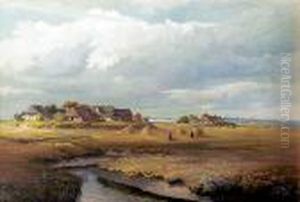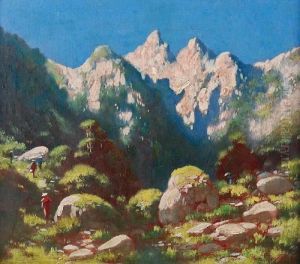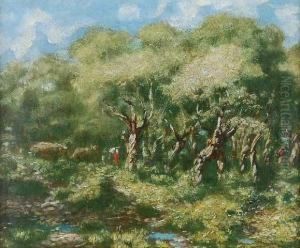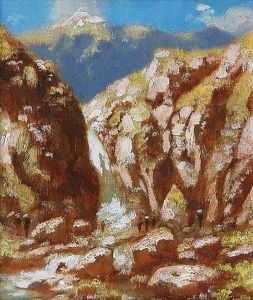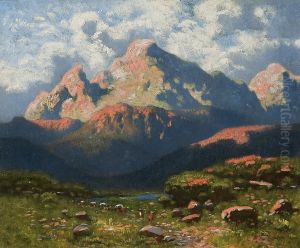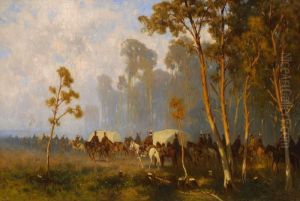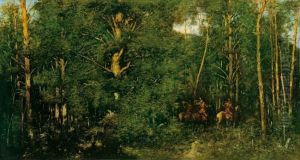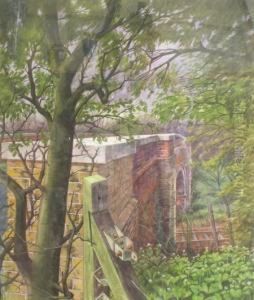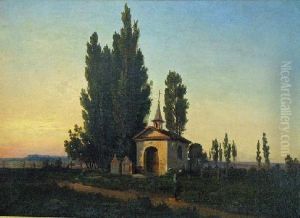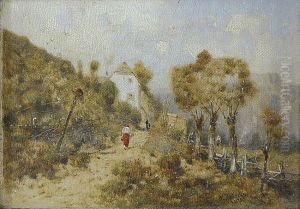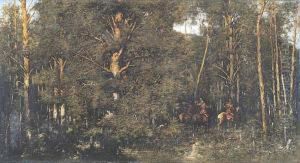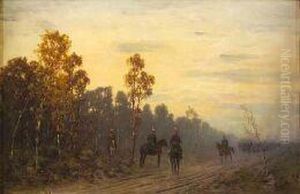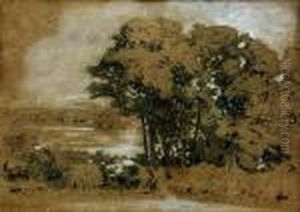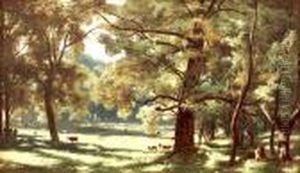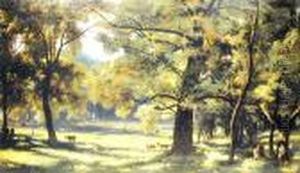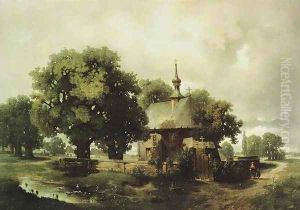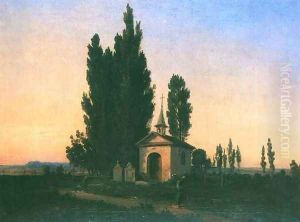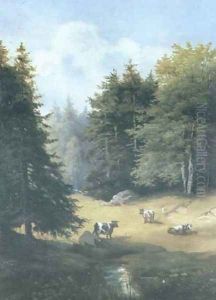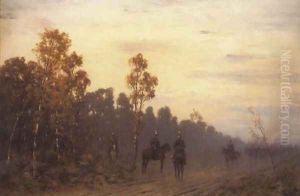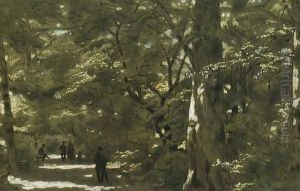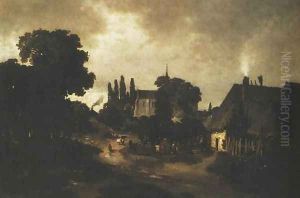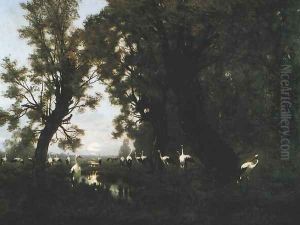Wladyslaw Aleksander Malecki Paintings
Władysław Aleksander Malecki was a prominent Polish landscape painter born on January 11, 1836, in Kraków, Poland. He was one of the most distinguished Polish artists of the 19th century, known for his remarkable ability to capture the natural beauty of the Polish countryside. Malecki received his early artistic education at the School of Fine Arts in Kraków, where he studied under the guidance of Wojciech Stattler, a well-respected painter of his time.
In an effort to further his artistic skills, Malecki moved to Vienna, Austria, where he continued his studies. His time in Vienna was highly influential, allowing him to absorb new artistic techniques and refine his approach to landscape painting. He then traveled extensively throughout Europe, including a significant period in Munich, Germany, which was then a vibrant center for art. There, he was exposed to the works of the German Romantic painters, whose influence can be seen in his later works.
Malecki's paintings often depicted the Tatra Mountains and other regions of Poland, characterized by a keen eye for detail and atmospheric perspective. He was adept at capturing the changing moods of nature, from the serene to the turbulent, often using lighting and weather conditions to enhance the emotional impact of his landscapes.
Throughout his career, Malecki exhibited his works in many prestigious galleries, earning accolades for his contribution to the Polish art scene. He was not only a painter but also an art critic and writer, contributing to the development of art theory in Poland. Despite his success, Malecki struggled with financial difficulties for much of his life, which were exacerbated by his generous support of fellow artists and his investments in philanthropic causes.
Władysław Aleksander Malecki died on October 5, 1900, in Kraków. His legacy is preserved through his beautiful landscapes, which continue to be admired for their poetic and evocative portrayal of the Polish environment. Today, his works can be found in various museums and private collections, serving as a testament to his skill and dedication to capturing the essence of his homeland.
